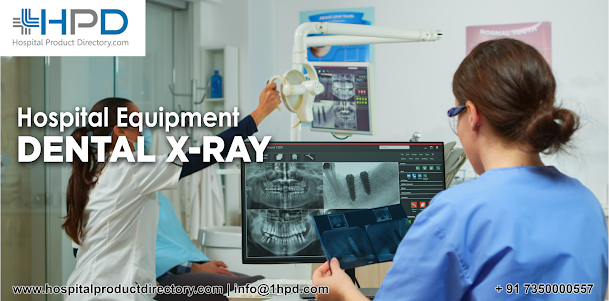Should A Kid Have A Dental X-Ray?
As a parent, revealing your infant or child to
radioactivity from an X-ray is never your first choice. But X-rays can be
valued investigative tools, and your child's dentist might endorse that your
child gets an X-ray completed on equipment supplied by Dental X-ray Suppliers to
identify any dental damage. Figuring out if this is the correct thing to do can
be complicated. That's why we are here to communicate with you more about the
X-ray process and significant pediatric dental X-ray rules so you can make an
informed choice about your youngster's teeth.
When
Must Your Youngster Get an X-Ray
There are many parts in your child's mouth that the
dentist can't see during a steady inspection, like underneath the gums or
inside the teeth. That's when X-rays can be fairly valuable. Dentists won't
naturally endorse an X-ray unless they've done a full medical investigation and
still have some unreturned queries about your child's teeth or oral fitness.
Here are some circumstances where a dentist might
endorse an X-ray:
· To figure out if there's the area in your child's
mouth for all inward teeth
· To regulate if your child is losing principal
teeth rapidly enough to make room for all permanent teeth
· To check for opening growth of wisdom teeth or any
teeth powerless to arise from the gums (recognized as impacted).
· To check for initial signs of tooth deterioration
· To look for any developing irregularities like
swellings or tumors
Kinds
of X-Rays
There are numerous kinds of X-rays done on equipment
bought from Dental X-ray Dealers,
each one serving a sole purpose. Contingent on what dentists are trying to find
out, they might command any of these kinds of X-rays:
Bitewing
A bitewing X-ray surveys the crowns of the upper and
lower teeth in one part of the mouth, for example, the molars and premolars. It
can be used to look at hollows or deterioration between teeth and observe
previous fillings' wear or breakdown.
Periapical
Absorbed on just one or two teeth, periapical X-rays
display the total of your child's tooth, from crown to root.
Occlusal
By tracking the job and fruition of the complete arc
of teeth in either the top or lowest jaw, occlusal X-rays can be consumed to
understand how the teeth fit composed when your child tastes downward.
Panoramic
A panoramic X-ray will display your youngster's
entire mouth in a single X-ray – all the teeth in mutually the upper and lower
jaws. These X-rays can be used to see developing teeth, wedged teeth, or
tumors.
Cephalometric
A cephalometric X-ray displays both your child's
teeth and the jaw and head by taking an aspect of the complete side of your
child's head. It can support scheduling orthodontic treatments.
Are
X-Rays Harmless?
Now you may know more about when X-rays are required
for your child but do you still have queries about their security? According
to Mouth
Fit by the American Dental Association, dental X-rays are
harmless. They will uncover your child to low radioactivity levels, but the
option of experiencing any damaging effects is also low. Additionally, most
dental specialists follow the new pediatric X-ray rules from the Food and Drug Administration. These rules endorse
that "medical X-ray imaging examinations be optimized to use the lowest
radioactivity dose needed."
That said, you can ask for a leaded bib or a leaded
thyroid neckline for your child so that you can buffer their stomach and
thyroid. And don't overlook that children with a low danger of tooth decline
don't need X-rays as often. That's why applying good oral sanitation is
critical. Inspire your child to brush twice a day with toothpaste that contests
hollows.
As a parent, it's usual to have safety worries about X-rays, but understanding the advantages and dangers of dental X-rays and talking to your child's dentist can support you figure out the best thing for your child.




Comments
Post a Comment